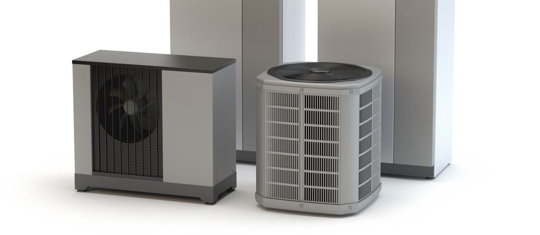As a homeowner, you may be looking to replace your air conditioning unit. You have two options: central or forced air. If you've ever wondered which is better, we're here to help.
Central AC vs. Forced AC
If you're shopping for a new AC system, it's important to understand the difference between central and forced air conditioning systems. Understanding these differences will help you choose the right type of cooling system for your home. Which one is better? Central Air Conditioning (AC) or Forced Air Conditioning (FAC)? The answer depends on what features are most important to you and your family.
A central AC only has one compressor and evaporator located in an indoor unit outside of your conditioned space. The ductwork runs throughout the house and branches off into multiple vents that direct cold air into each room. This type of system uses less electricity than FAC because it doesn't need as much electrical power running throughout its ductwork.
FAC uses multiple compressors and evaporators located throughout a home's conditioned space that draw moisture from outside through various venting systems within your home's structure, such as window units or through wall registers, then blow across coils inside an outdoor condenser unit before being released back out into the open air again after cooling down further through an exhaust fan located behind the device's casing as well as heat exchanger tubes which send expelling hot air upwards towards ceilings. This results in less efficient when compared to single-phase systems.
What Type of HVAC System Is Best?
If you want to know what type of HVAC system is best for your home, the answer depends on how long you plan to live there. You can't go wrong with either a central or forced air conditioning unit, but each one has its own advantages and disadvantages.
Energy Efficiency
Central air conditioning is more energy-efficient than forced air units. This is because it uses one unit, which can be placed in the attic or on a wall outside of your home. A central unit disperses cool air throughout your home through ducts and vents that run through your entire house. Forced air units, on the other hand, use multiple parts: an outdoor compressor, an indoor condenser and a blower fan to distribute cool air throughout your space.
The central system requires less maintenance than forced systems, too! For those who want a low-maintenance lifestyle with high-efficiency cooling then go for central AC since it’s perfect for this kind of lifestyle
Temperature Control
Both are more efficient than window units, with central air conditioning systems able to operate at around 15 percent to 20 percent efficiency in cooling.
However, a forced-air system is much more easily controlled because the blower motor can be turned on and off as needed. In contrast, a central system's compressor has to run constantly to maintain temperature regardless of whether you're home or not—so if you leave for an extended period of time, your energy costs will be higher than those from a forced-air system.
Central AC systems are also more expensive to install because they require ductwork (which adds cost) and may require electrical work to connect them.
Central air conditioning is more expensive but more energy-efficient. Forced air conditioning is more affordable to install, but less energy-efficient.
Central air conditioning systems use a large compressor and condenser outside your home. The compressor pumps refrigerant through tubing inside the walls or ceiling of your house where it cools down and separates into liquid and gas. The liquid travels throughout your home via refrigerant lines while the gas returns to the outdoor unit through expansion valves where it's compressed again before entering its second stage of cooling in the indoor coil of your furnace or boiler unit (depending on whether you have forced-air heating).
The most common type of forced-air system consists of an outdoor condenser that's connected by pipes to an indoor blower which pushes warm air into ducts throughout your home via flexible metal ductwork. These systems tend to cost about half as much as central units but are less energy efficient because they don't carry out any cooling functions until they reach their final destinations at various points around your house instead of being chilled from one central location like with a central ac system
In conclusion, central air conditioning is more expensive and more energy efficient. Forced air is cheaper to install but less energy efficient. Central AC systems are best suited for homes with three or more bedrooms, while forced air systems are better suited for one or two-bedroom homes. For more information on these, give Hembree Heating and Air a call today!
